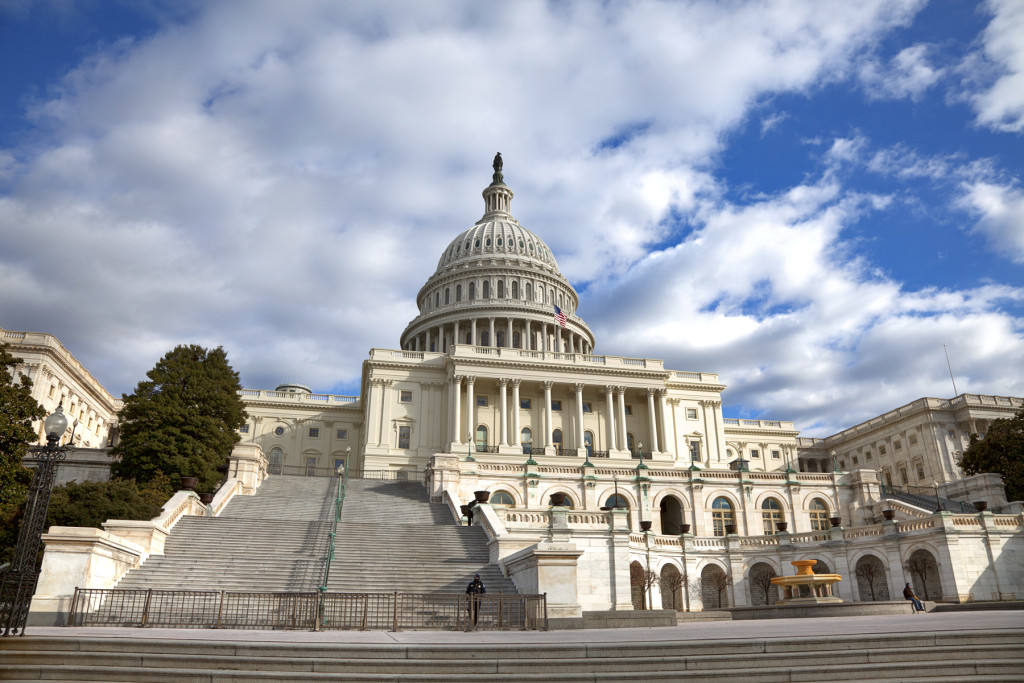Evidence of First Lady Dianne Bentley’s significant contributions have vanished

When Alabama Today launched we highlighted First Lady Dianne Bentley as a Woman of Influence in the state. After all, the first lady’s work on domestic violence has changed the state for the better permanently. When her divorce from Governor Robert Bentley was first reported Alabama Today reached out to the governor’s office to ask what, if anything, Dianne Bentley would continue doing in her official capacity after the divorce was final. We never received a response to our inquiry, but today noticed the first lady’s official webpage, Twitter and Facebook accounts have all been deleted. I’m calling on the Governor’s office to rethink this rash decision. While Dianne may no longer be the first lady, the much-needed attention she brought to key issues, such as domestic violence prevention and recovery, education and literacy as she visited classrooms across the Yellowhammer state, are of value and are certainly worth remembering. Alabama Today suggests giving her back her Facebook and Twitter accounts and taking “First Lady” out of the title if that’s the issue at hand. In the very least, we suggest you reinstate her official webpage and post a farewell letter thanking her for her year’s of dedicated service to the state. There has to be a better way to proceed during this difficult time rather than to simply press delete and attempt to erase her from Alabama’s history books. That’s just disrespectful. Come on Governor Bentley, we know you can do better. The first lady worked hard for the state and her legacy will continue beyond the time you’re in office. You can’t and shouldn’t try to whitewash that with a few clicks of a mouse. New site missing the “First Lady” tab:
With Alabama delegation support, House passes sweeping defense bill compromise

With the support of all but one member of the Alabama delegation, the U.S. House of Representatives passed a compromise $612 billion annual defense authorization bill Thursday. The National Defense Authorization Act (NDAA) for Fiscal Year 2016 conference report, legislation correcting differences between the House and Senate, passed with a vote of 270 to 156. The NDAA authorizes funding for the Department of Defense and among other provisions includes a pay raise for troops, overhauling the military retirement system, which is currently only available to the 17 percent of service members who serve 20 plus years, and reworking the Pentagon’s acquisition system to improve efficiency and avoid cost overruns. The afternoon vote, largely along party lines, saw just 36 Democrats support the legislation, putting the final tally just 20 votes shy of being able to override a very possible presidential veto. Less than 24 hours before the vote, the White House reiterated President Barack Obama‘s veto threat. The president’s press secretary, Josh Earnest, called the NDAA an “irresponsible way to fund our national defense priorities.” But Alabama congressman, Bradley Bryne disagrees. On the House floor Thursday morning, Byrne delivered a passionate speech regarding the NDAA, “…let’s just take a quick look at what all is going on in the world today. From Syria to Iraq to the Pacific to Iran to Russia, the list goes on and on. Look at the wide range of threats facing our nation. And for our President – our Commander-in-Chief – to threaten to veto this bipartisan bill is simply reprehensible.” Among other supporters from Alabama delegation was Rep. Mike Rogers. “We worked long and hard on this crucial piece of legislation,” said Rogers, a conferee who helped reconcile the House and Senate bills. “I am proud it passed the House with my strong support and am pleased our military is funded to help keep our nation safe.” As a conferee, Rogers worked to ensure language similar to an amendment he introduced in the House — to allow the Army to transfer its surplus vintage firearms, the excess M1911A1 pistols, to the Civilian Marksmanship Program (CMP) to sale — was included in the Conference Report. Another key provision for the Yellowhammer state was the inclusion of language that would prohibit furloughs at Working Capital Fund facilities — such as the Anniston Army Depot, which is one of the largest employers in East Alabama — as long as there was funded workload. “I am very pleased with the CMP amendment and the inclusion of the language to take care of the Depot. I hope the Senate will quickly pass this legislation so it can go to President Obama to be signed into law,” Rogers continued. Reps. Bradley Byrne (AL-01), Martha Roby (AL-02), Mike Rogers (AL-03), Robert Aderholt (AL-04), Mo Brooks (AL-05), Gary Palmer (AL-06) voted in for the bill. Rep. Terri Sewell (AL-07) voted against it.
Alabama ranks No. 30 for best state for teachers

Another study, another mediocre ranking for the Yellowhammer State. Released just in time for International World Teachers’ Day on Oct. 5, a new study of the 50 states and the District of Columbia found Alabama ranks the 30th best state for teachers. Conducted by the personal finance website WalletHub, the in-depth analysis found that teachers across the U.S. are shortchanged every year — their salaries consistently fail to keep up with inflation — all the while the law demands they produce better students. The same is true for Alabama. While the study found Alabama’s average teacher starting salary to be $39,346, the 5th best in the country, teacher income growth potential in the state ranks 50th — essentially, Yellowhammer teacher salaries don’t progress with their careers. That statistic doesn’t bode well for improving education across the state. According to the National Center for Education Statistics, nearly one-fifth of all new public school teachers leave their positions before the end of their first year and almost half don’t last more than five years. Without good teachers who are happy to stay in their jobs, the quality of Alabama education is bound to suffer. But Yellowhammer families shouldn’t be too discouraged, there’s hope yet for the state. Earlier this year, the Alabama Legislature passed a $6 billion Education Fund budget that includes a $13 million increase for textbooks and more than $10 million for the Alabama’s nationally acclaimed Pre-K program. Gov. Robert Bentley also signed a law authorizing Alabama’s first charter schools, allowing for the creation of public schools with the ability to develop curriculum and select teachers bound by contracts instead of regulations set by the state. Before this, Alabama was one of only eight states without charter schools, according to the Alabama Coalition for Public Charter Schools. When asked about the latest ranking, Alabama’s State Superintendent of Education, Dr. Tommy Bice told Alabama Today, “Our primary goal is making sure the students of Alabama receive a quality education that adequately prepares them for life after high school, be it college or the workforce. Our teachers are essential in making that happen. We do not focus on rankings and comparisons. Rather we do all that we can to support our teachers, provide research-based professional growth opportunities, provide comprehensive induction and mentoring programs, and invest in efforts to recruit and retain great educators.” “We are faced with unprecedented budgetary struggles and challenging expectations – yet our teachers come to school every day with steadfast dedication and a resolve to make a difference in the lives of our students,” Bice continued. “Making sure our teachers are well-prepared, resourced, supported and effective so they can make sure our students graduate from school prepared for life is our goal. There are an assortment of surveys and rankings from numerous sources that judge and categorize schools and teachers with a wide variety of criteria and methodologies. Our intention is to stay committed to being the best we can be for Alabama students as we meet the goals of Alabama’s plan of continuous improvement – PLAN 2020.” The following are the statistics that were released regarding being a teacher in Alabama and how it ranks with the rest of the United States. (1=Best; 25=Average) Average starting salary for teachers: 5th Median annual salary for teachers: 23rd Teachers’ income growth potential: 50th Projected number of teachers per student by 2022: 15th Unemployment rate: 40th 10-year change in teacher salaries: 10th WalletHub “School Systems” ranking: 39th Pupil-to-teacher ratio: 22nd Safest schools: 13th WalletHub “Underprivileged Children” Ranking: 42nd Public school spending per student: 44th As for how neighboring states fared, Alabama was in good company — Mississippi ranked 48th, Georgia 37th, Tennessee 33rd, and Florida 27th. Source: WalletHub
Hillary Clinton private account targeted in Russia-linked email scam

Russia-linked hackers tried at least five times to trick Hillary Rodham Clinton into infecting her computer systems while she was secretary of state, newly released emails show. It is unclear whether she was fooled into clicking any attachments to expose her account. Clinton received the virus-riddled emails, disguised as speeding tickets from New York, over four hours early on the morning of Aug. 3, 2011. The emails instructed recipients to print the attached tickets – and opening them would have allowed hackers to take over control of a victim’s computer. Security researchers who analyzed the malicious software in September 2011 said that infected computers would transmit information from victims to at least three server computers overseas, including one in Russia. That doesn’t necessarily mean Russian intelligence or citizens were responsible. Nick Merrill, a spokesman for Clinton’s Democratic presidential campaign, said: “We have no evidence to suggest she replied to this email or that she opened the attachment. As we have said before, there is no evidence that the system was ever breached. All these emails show is that, like millions of other Americans, she received spam.” Practically every Internet user is inundated with spam or virus-riddled messages daily. But these messages show hackers had Clinton’s email address, which was not public, and sent her a fake traffic ticket from New York state, where she lives. Most commercial antivirus software at the time would have detected the software and blocked it. The phishing attempts highlight the risk of Clinton’s unsecure email being pried open by foreign intelligence agencies, even if others also received the virus concealed as a speeding ticket from Chatham, New York. The email misspelled the name of the city, came from a supposed New York City government account and contained a “Ticket.zip” file that would have been a red flag. Clinton has faced increasing questions over whether her unusual email setup amounted to a proper form of secrecy protection and records retention. The emails themselves – many redacted heavily before public release – have provided no shocking disclosures thus far and Clinton has insisted the server was secure. During Clinton’s tenure, the State Department and other U.S. government agencies faced their own series of hacking attacks. U.S. counterterrorism officials have linked them to China and Russia. But the government has a large staff of information technology experts, whereas Clinton has yet to provide any information on who maintained her server and how well it was secured. Republican presidential candidate Marco Rubio told Fox News Channel on Wednesday, “The exposure of sensitive information to foreign intelligence agencies by communicating in an insecure manner is incompetent, it is malpractice, it’s inexcusable.” The emails released Wednesday also show a Clinton confidant urging her boss and others in June 2011 not to “telegraph” how often senior officials at the State Department relied on their private email accounts to do government business because it could inspire hackers to steal information. The discussion never mentioned Clinton’s own usage of a private email account and server. The exchange begins with policy chief Anne-Marie Slaughter lamenting that the State Department’s technology is “so antiquated that NO ONE uses a State-issued laptop and even high officials routinely end up using their home email accounts to be able to get their work done quickly and effectively.” She said more funds were needed and that an opinion piece might make the point to legislators. Clinton said the idea “makes good sense,” but her chief of staff, Cheryl Mills, disagreed: “As someone who attempted to be hacked (yes I was one), I am not sure we want to telegraph how much folks do or don’t do off state mail b/c it may encourage others who are out there.” The hacking attempts were included in the 6,300 pages the State Department released, covering a period when U.S. forces killed Osama bin Laden and the Arab Spring rocked American diplomacy. New York State police warned as early as July 2011 about emails containing warnings of traffic tickets that actually contained computer viruses. Clinton received five copies between 1:44 am and 5:26 am on Aug. 3, 2011. They appeared to come from “New York State — Department of Motor Vehicles,” warning that a car registered to Clinton was caught speeding “over 55 zone” on July 5. Clinton had no public events in Washington that day, following the July 4 holiday. The email instructed the recipient to “print out the enclosed ticker and send it to town court, Chatam Hall, PO Box 117.” The former first lady and New York senator had maintained that nothing was classified in her correspondence, but the intelligence community has identified messages containing “top secret” information. Clinton had insisted that all of her work emails were being reviewed by the State Department, but Pentagon officials recently discovered a new chain of messages between Clinton and then-Gen. David Petraeus dating to her first days in office that she did not send to the State Department. As part of Wednesday’s release, officials upgraded the classification level of portions of 215 emails, State Department spokesman John Kirby said. Almost all were “confidential,” the lowest level of classification. Three emails were declared “secret,” a mid-tier level for information that could still cause serious damage to national security, if made public. “The information we upgraded today was not marked classified at the time the emails were sent,” Kirby stressed. Republished with permission of The Associated Press.
No shutdown: Congress approves bill to keep government open

Just hours before a midnight deadline, a bitterly divided Congress approved a stopgap spending bill Wednesday to keep the federal government open – but with no assurance there won’t be yet another shutdown showdown in December. Democrats helped beleaguered House Republican leaders pass the measure by 277-151 – a lopsided vote shrouding deep disagreements within the GOP – after the Senate approved it by a 78-20 tally earlier in the day. President Barack Obama signed the bill Wednesday evening, but not without White House carping. “The American people deserve far better than last-minute, short-term legislating,” said spokesman Josh Earnest in pressing for a broader, longer-lasting budget deal. Approval of such stopgap measures used to be routine, but debate this year exposed acrimonious divisions between pragmatic Republicans such as House Speaker John Boehner and more junior lawmakers in the party’s tea party wing who are less inclined to compromise. The tea partyers had demanded that the must-pass measure be used to punish Planned Parenthood, stripping it of federal money because of its practice of supplying tissue from aborted fetuses for scientific research. House Republicans opposed the measure by a clear margin, but Democratic support was unanimous. The legislation finances the government through Dec. 11, providing 10 weeks to negotiate a more wide-ranging budget deal that would carry past the 2016 presidential election. But the talks promise to be difficult, and success is not assured. Boehner is resigning from Congress at the end of October, a decision he announced last week after informing Republicans he would not risk a government shutdown over Planned Parenthood. A similar fight over implementing Obama’s health care law sparked a 16-day shutdown two years ago that Boehner, Senate Majority Leader Mitch McConnell of Kentucky and other top Republicans did not want to repeat in election season. McConnell is seeking to protect embattled incumbents in Democratic-leaning states such as Wisconsin and Pennsylvania, while some GOP conservatives are more apt to use the battle to appeal to the party’s core voters on the right. “Today was a win for the Washington cartel, and another setback for the American people,” said Sen. Ted Cruz, R-Texas, who is using combat with Washington GOP leaders to help define his presidential campaign. “Republican leadership chose to abandon its constitutional power of the purse and to fund 100 percent of President Obama’s failed agenda.” Support from Democrats also helped power the measure through the Senate, all of the opposition coming from conservative Republicans. Longtime lawmakers bemoaned the chronic dysfunction on Capitol Hill and the collapse of the annual appropriations process that is supposed to be wrapped up by now. Democrats demanding a new budget deal have blocked work in the Senate, while a fight over the Confederate flag halted work in the House with only six of the 12 annual spending bills having passed. “It is to my great dismay that we are at this point again, requiring a temporary Band-Aid to buy us time to do our duty,” said Rep. Hal Rogers, R-Ky., chairman of the Appropriations Committee, during House debate. Tea party anger directed at Boehner over the Planned Parenthood issue helped prod the Ohio Republican’s announcement to step down. His decision – and other House leadership races – have highlighted divisions between more pragmatic Republicans and hardline conservative wing that is increasingly prominent in Congress, especially in the rough-and-tumble House. McConnell said Tuesday that he and Boehner spoke with Obama recently and that he expects budget negotiations to get underway soon. The turmoil in the House, where many conservatives want to block spending increases, is certain to complicate the talks, which are likely to focus on swapping near-term budget increases for the Pentagon and domestic programs for longer-term saving elsewhere in the budget. Majority Leader Kevin McCarthy, R-Calif., the likely new House speaker, hasn’t said whether he supports a deal. The Pentagon and domestic agencies all are still operating under automatic curbs that would effectively freeze their spending at current levels. Republicans are leading the drive to boost defense while Obama is demanding equal relief for domestic programs. The conversation among McConnell, Boehner and Obama took place in mid-September – before Boehner announced he was stepping down. Many of the conservative GOP lawmakers who helped bring Boehner down want to preserve stringent “caps” on the spending bills Congress passes every year. But Senate Republicans are generally more eager to rework the 2011 Budget Control Act that put them in place. “We have to stop devastating sequester cuts from hitting our military and middle class, even the Republican leader agrees,” said top Senate Democrat Harry Reid of Nevada. “Because a week or 10 days ago he said `We are inevitably going to end up in negotiations that that will crack the Budget Control Act once again. I say `hallelujah.’” Eight of the 20 Republican senators who opposed Wednesday’s bill are up for re-election in states carried by Mitt Romney in 2012. Presidential aspirants Lindsey Graham of South Carolina and Marco Rubio of Florida skipped the vote. Republicans have long targeted Planned Parenthood, and the group’s top official defended it in congressional testimony on Tuesday. Republicans say that videos made by abortion foes show Planned Parenthood has broken federal laws including a ban on for-profit fetal tissue sales. The organization says it has acted legally and the videos were deceptively edited. Republished with permission of The Associated Press.


